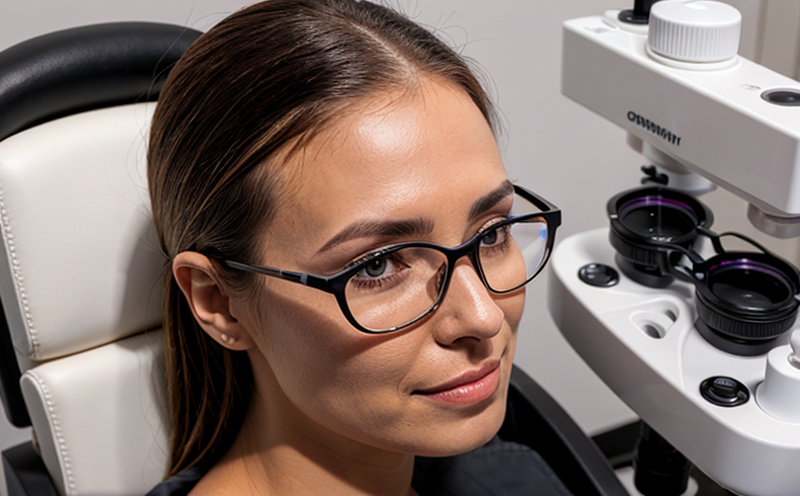ISO 14644 Cleanroom Airborne Particle Monitoring Testing
In pharmaceutical manufacturing, cleanrooms are critical to ensuring product quality and safety. The ISO 14644 series of standards provides a framework for managing air cleanliness in these environments. Among the various types of testing required by this standard is airborne particle monitoring. This service ensures that the air within a cleanroom meets the specified criteria for particulate contamination, thereby safeguarding against potential risks to product integrity and patient health.
The importance of this service cannot be overstated, especially in industries such as pharmaceuticals where even minute particles can have severe consequences. By adhering to ISO 14644 standards during manufacturing processes, companies demonstrate their commitment to quality control and compliance with regulatory requirements.
This testing involves the use of specialized instruments that continuously monitor particle levels within a cleanroom environment. The data collected is analyzed against predefined limits set forth by the relevant standard, which helps identify any deviations from acceptable ranges early on. This proactive approach enables timely corrective actions to be taken before issues escalate into larger problems.
The process begins with thorough preparation of both personnel and equipment prior to commencement of sampling activities. All participants must wear appropriate personal protective gear (PPE) designed specifically for cleanroom environments to minimize contamination risk. Similarly, all instruments used for measurement purposes should undergo calibration according to manufacturer specifications before each usage cycle.
Sampling techniques vary depending on specific application needs but generally involve placing sensors strategically throughout the facility where there are highest concentrations of particulates. These locations might include areas near HVAC systems, process equipment, personnel entry points, etc., ensuring comprehensive coverage across all relevant zones.
Data acquisition typically occurs over extended periods (days to weeks), allowing for accurate representation of typical operating conditions under normal production scenarios. Once collected, this information undergoes rigorous analysis using statistical methods provided in the ISO 14644 guidelines to determine whether particulate counts fall within acceptable thresholds specified by applicable regulations.
| Location | Airborne Particle Size Range (µm) | Maximum Allowable Concentration (Number/m³) |
|---|---|---|
| Main Production Area | 0.1 - 5 µm | 3,500 particles/m³ |
| Dressing Room | 0.2 - 10 µm | 7,000 particles/m³ |
The results from these analyses form the basis of periodic reports submitted to relevant stakeholders including internal management teams and external regulatory authorities like FDA or EMA. These documents serve multiple purposes ranging from internal audit trails to supporting compliance submissions during inspections.
Scope and Methodology
- Comprehensive monitoring of airborne particles across various size ranges
- Utilization of cutting-edge instrumentation capable of detecting extremely small particulates
- Strategic placement of sensors in key areas to capture representative data
- Data collection spanning multiple days or even weeks for robust statistical analysis
Eurolab Advantages
EuroLab offers unparalleled expertise in pharmaceutical testing, leveraging years of experience in this highly regulated industry. Our team comprises highly qualified professionals who stay updated with the latest developments and best practices associated with ISO 14644 standards.
We employ state-of-the-art equipment tailored specifically for cleanroom applications, ensuring precise measurements that meet or exceed international benchmarks. With our extensive network of laboratories across Europe, we can accommodate diverse client needs ranging from small-scale operations to large multinational corporations.
Our commitment extends beyond just conducting tests; it includes offering valuable insights based on our findings through detailed reports and recommendations aimed at improving overall air quality within cleanrooms. Additionally, EuroLab provides training sessions for clients wishing to enhance their internal capabilities regarding ISO 14644 compliance.
Competitive Advantage and Market Impact
- Leader in pharmaceutical testing services, trusted by major pharma companies worldwide
- Pioneers in utilizing advanced technology for more accurate particle detection
- First to introduce comprehensive training programs focused on enhancing client capabilities
- Proven track record of helping clients achieve regulatory compliance effortlessly





